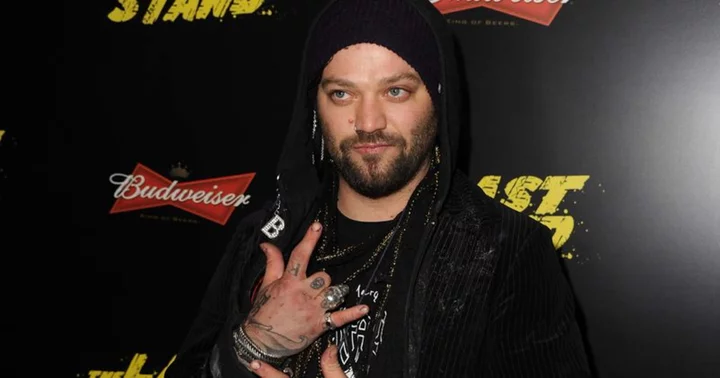
Is Bam Margera okay? 'Jackass' star went missing after sending concerning text to brother
Jess Margera claimed that his brother sent him a text that had a suicidal tone
2023-06-05 19:26

Does your pillowcase make a difference to your skin and hair health?
There’s a reason we call it beauty sleep: a good night’s kip can erase dark circles and transform a tired complexion, leaving you looking and feeling as fresh as a daisy. It’s not always possible to get the recommended seven to nine hours of shut-eye a night, however, so could your choice of bedding enhance your skin – and prevent bedhead hair – while you snooze? Some beauty buffs won’t sleep on anything but silk, and now there are even copper and skincare-infused pillowcases promising to smooth your strands and decrease the signs of ageing. But do these fabrics really make a difference, or will catching enough Zs keep your hair and skin at their healthiest? What happens to skin while we sleep? “While we sleep, skin cells regenerate, and the production of collagen and elastin, two essential proteins for skin elasticity and youthfulness, increases,” says Dr Radmila Lukian, dermatologist at Lucia Clinic. “Moreover, the skin’s protective barrier strengthens, helping it retain moisture and shield against environmental stressors.” That’s why you can end up with a dull, lacklustre complexion if you’ve not been getting enough rest. “Increased blood flow to the skin during sleep delivers the necessary oxygen and nutrients for cell renewal,” says Dr. Johannes Uys, GP at Broadgate General Practice. “Adequate sleep will contribute towards a healthier complexion as a result, while poor sleep can lead to skin issues such as dryness and premature ageing.” How important is sleep for hair health? “Deep sleep is vital for hair as this is when the body repairs and regenerates hair cells,” says Mark Blake, globally recognised trichologist and Nioxin ambassador. If you’re suffering with stress, sleep gives your body a break and a chance to recover. “Stress can cause hair loss conditions such as telogen effluvium,” says Blake, meaning temporary shedding of hair. “Sleep is the time your body does a form of damage control, sending anti-inflammatory agents to areas of damage: repairing, replacing, and removing damaged cells in the body. ” Can your pillowcase fabric have a detrimental impact? “The fabric of your pillowcase can have a notable effect on your skin,” says Lukian. “Coarse or abrasive fabrics can lead to friction, potentially causing skin irritation and even tiny tears.” This can be particularly problematic for individuals with sensitive or acne-prone skin. Cotton could, Uys says: “Lead to frizz or hair tangles because of increased friction, and may also potentially dry out the skin because of its greater propensity to absorb moisture.” While there’s no evidence that friction during the night can cause hair loss, if you don’t wash your pillowcase frequently enough (ideally once a week), it could affect the condition of your hair. Blake says: “Bacteria, sebum and general dirt can be transferred from your pillowcase back on to clean hair leaving it dull, lank, and lifeless when you wake up.” What’s the best type of pillowcase for skin and hair? If you want the smoothest and least absorbent pillowcase, experts say silk is usually the best – but also the most expensive – option, unless you’re vegan, as it’s derived from insects. “Silk pillowcases reduce friction, which can help prevent wrinkles,” says Lukian. “Silk is also less likely to absorb moisture from your skin, aiding in maintaining skin hydration.” Satin, which is a silk-like textile woven from a variety of materials, is a cheaper alternative, she says: “Satin pillowcases have a smooth surface that reduces friction and can be a suitable choice for those concerned about skin health.” If you prefer a crisp cotton pillowcase, Lukian recommends: “Look for ones with a high thread count, as they tend to be smoother and gentler on the skin. Cotton is breathable and can help prevent overheating during sleep.” Blake agrees that silk is the top choice when it comes to looking after your hair. “The tight weave gives a smooth, slippery surface helping prevent bed head allowing you to wake up with the same hairstyle you went to bed with,” he says. “Silk pillowcases cannot hold bacteria, fungus or mould and so are not a breeding ground or health hazard.” Could the new generation of high-tech pillowcases supercharge your sleep? “These products often incorporate materials like copper-infused fabric, with the promise of promoting collagen production and reducing wrinkles,” Lukian explains. “Skincare-infused and ‘anti-ageing’ pillowcases may offer some benefits, but should not replace a holistic skincare routine and healthy lifestyle choices when aiming to maintain youthful and healthy skin.” Drowsy Damask Rose Standard Sized Silk Pillowcase, £67 (was £89)Damask Rose Silk Pillowcase John Lewis Organic Mulberry Silk Standard Pillowcase Natural Cream, £45 Dunelm Dorma Silver Silk Pillowcases, £30 each Jessica Russell Flint Silk Pillowcase De Fleurs, £65, Not On The High Street Bed Lab Skincare Infused Pillow Graphite Grey, £49 Read More As transphobic hate crimes rise by 11% in a year, how to be a better ally Impact of relationships with AI chatbot programmes ‘worrying’, psychologist says Pokemon’s Detective Pikachu Returns and more top games of the week How to talk to kids about cigarettes and vapes, following Rishi Sunak’s smoke-free generation plans 4 must-have denim trends for autumn, from wide-leg jeans to split skirts Doorscaping: How to create a fabulous front door display for autumn
2023-10-06 15:47
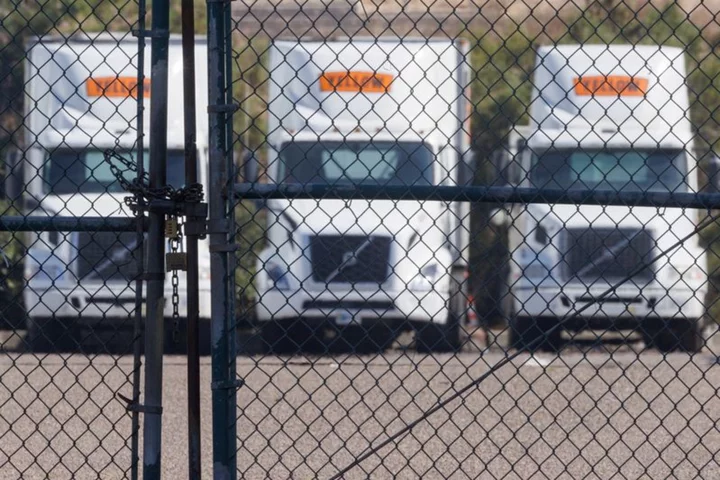
Trucking firm Estes Express submits revised $1.525 billion bid for Yellow's shipment centers
By Juby Babu Trucking firm Estes Express has submitted a revised stalking horse bid worth $1.525 billion in
2023-09-14 09:59
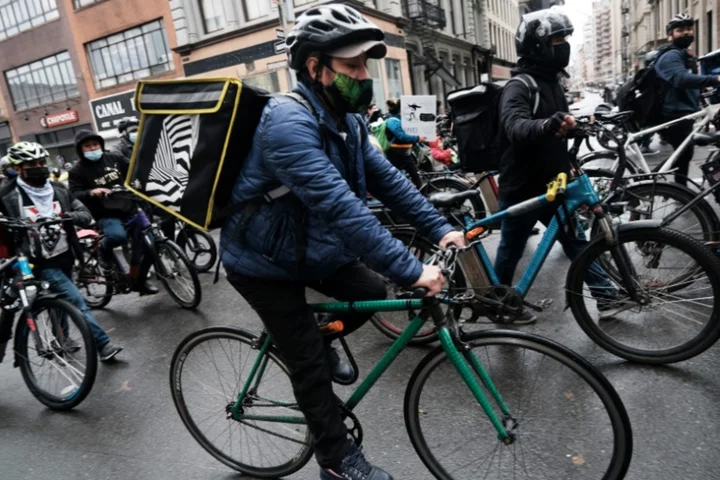
NY judge says pay raise for delivery workers can go ahead
Three big companies in the gig economy -- Uber, Doordash and Grubhub -- lost a court battle Thursday in New York after a judge upheld a new minimum wage for app-based food delivery...
2023-09-29 06:53

Asia Shares Set to Gain as China Vows Stimulus: Markets Wrap
China is set to lead Asian stocks higher on optimism of more economic stimulus to come from Beijing,
2023-07-25 07:20
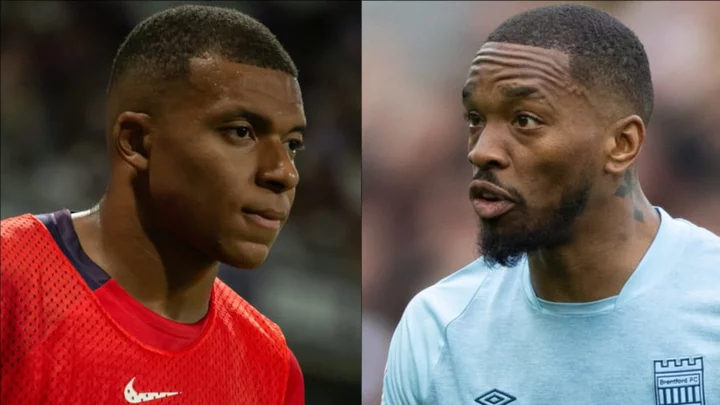
Football transfer rumours: Mbappe rejects PSG contract; Arsenal & Tottenham eye Toney
Friday's football transfer rumours include Kylian Mbappe, Ivan Toney, Romelu Lukaku, Federico Chiesea, Matheus Nunes, Brennan Johnson & more.
2023-08-25 16:49

Civilians Trapped in Gaza Are Running Out of Food, Fuel and Hope
In the days after Oct. 7, bombs started falling from the sky. Leaflets fell too, urging the 1.1
2023-11-07 23:46
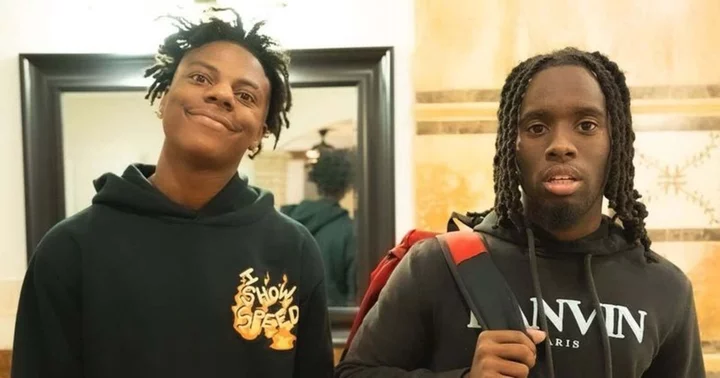
Sidemen fans mock YouTube Allstars' Kai Cenat for mimicking IShowSpeed's signature move
Sidemen fans playfully teased Kai Cenat after a clip of his offside move went viral on social media
2023-09-10 20:58
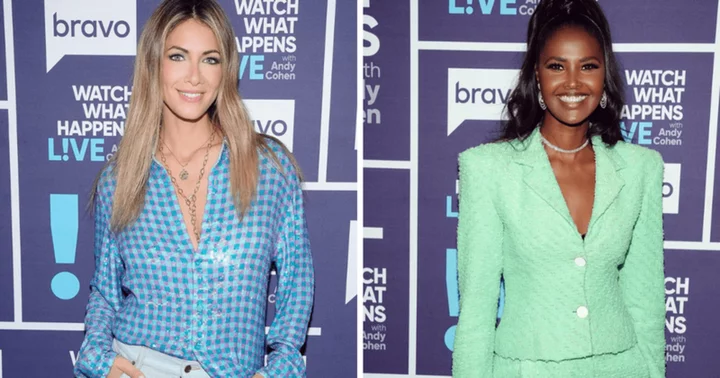
Where does Erin Lichy live? 'RHONY: Reboot' star Ubah Hassan struggles to stay at co-star's house for girls' night
Erin Lichy's invite to her refurbished Hamptons house for 'RHONY: Reboot' co-stars faces resistance as Ubah Hassan finds it challenging to agree
2023-07-24 08:16
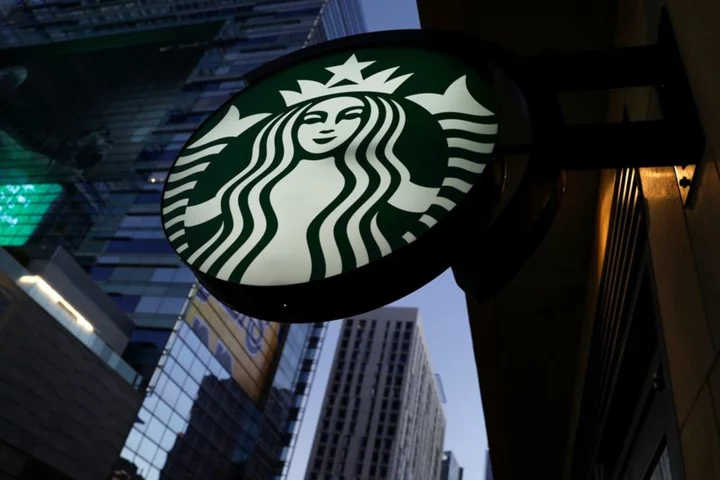
Starbucks workers at over 150 stores to strike over Pride decor dispute
(Reuters) -More than 150 Starbucks stores and 3,500 workers will be on strike next week across the United States, the
2023-06-23 21:28

Inter Miami fire coach Neville
Inter Miami have fired their English coach Phil Neville after a fourth straight loss left the club bottom of the Eastern Conference in Major League...
2023-06-02 06:24

'Barbie' director Greta Gerwig reveals visitors or set 'high-fived' Ryan Gosling and made Margot Robbie 'self-conscious'
Greta Gerwig detailed how passersby would high-five Ryan Gosling and praise his Ken appearance without saying anything to Margot Robbie on the film's set
2023-07-05 14:16
You Might Like...
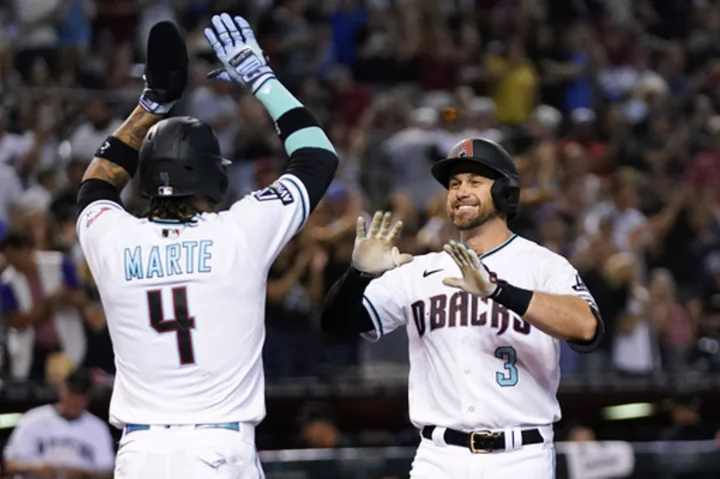
Diamondbacks withstand Realmuto hitting for the cycle to beat Phillies 9-8
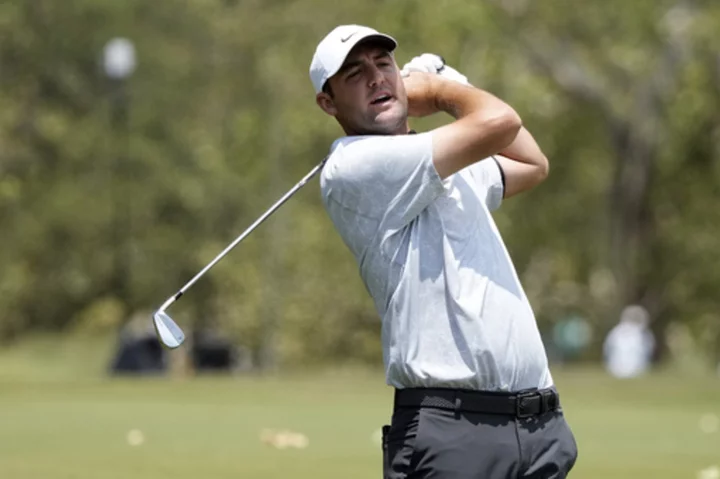
Scottie Scheffler arrives at US Open looking to solve putting problems
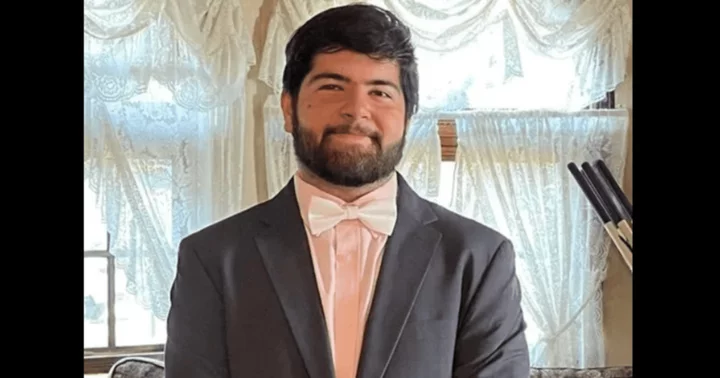
Who was Robert Bush? Long Island high school footballer, 17, taken off life support after suffering 'cardiac event' during practice

Goldman Cuts China Index Target While Retaining Overweight Call
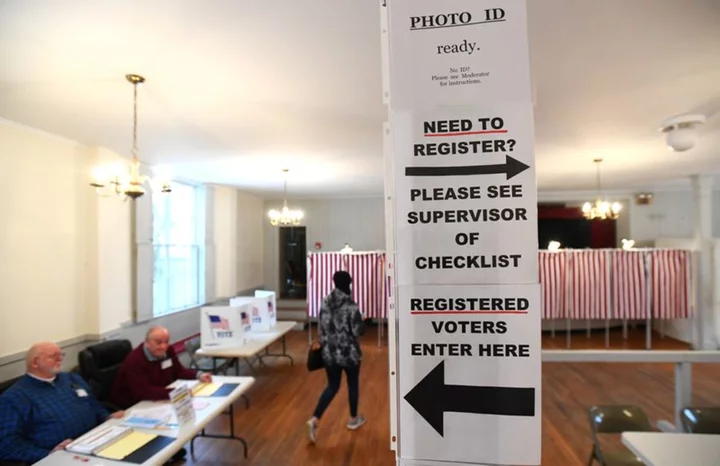
New Hampshire sets primary date for Jan. 23, defying Biden's order
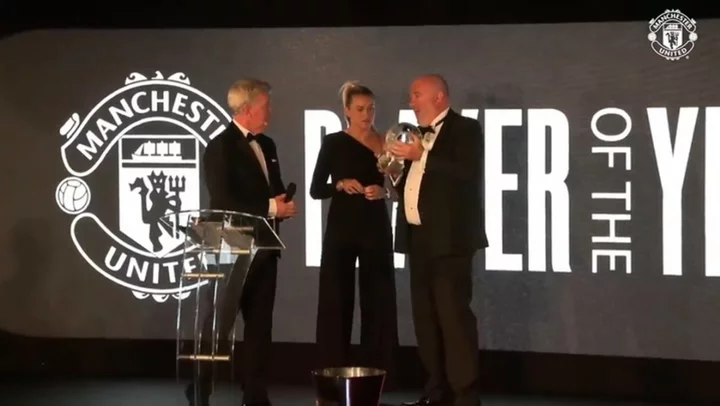
Moment Man United executive refuses to pass trophy to Lioness Alessia Russo because it’s too ‘heavy’

When will 'Unsellable Houses' Season 4 drop? Release date, time and how to watch HGTV's real estate and home design show
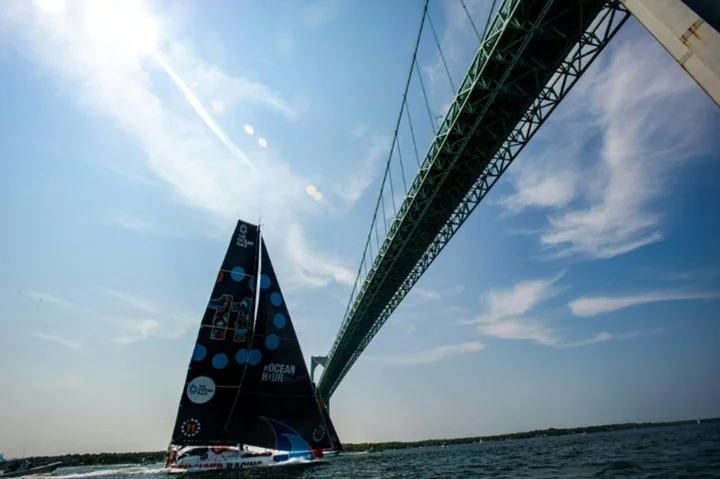
American crew grabs Ocean Race lead
